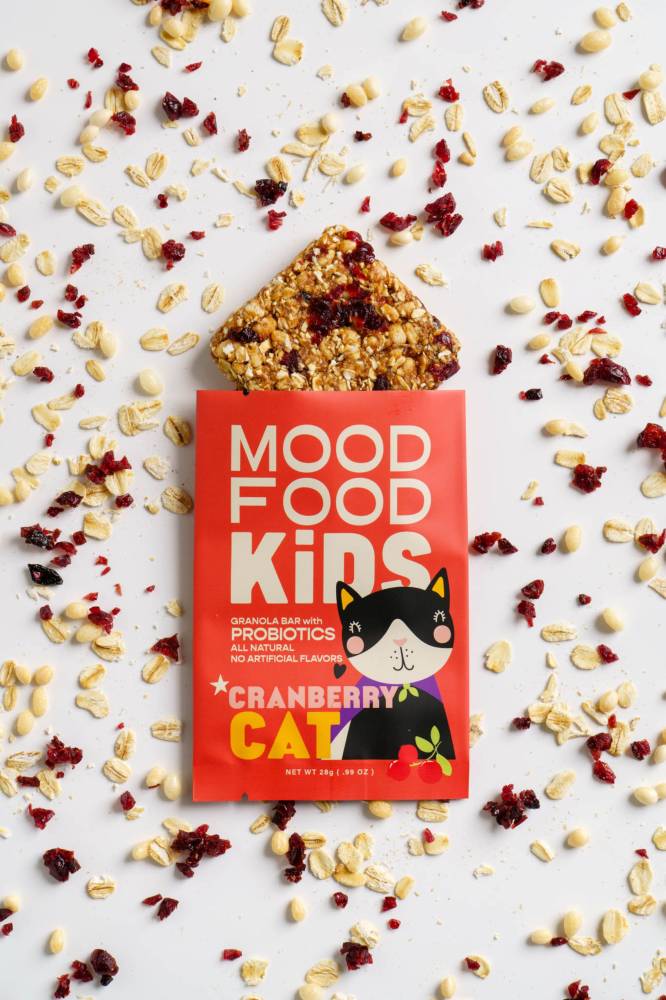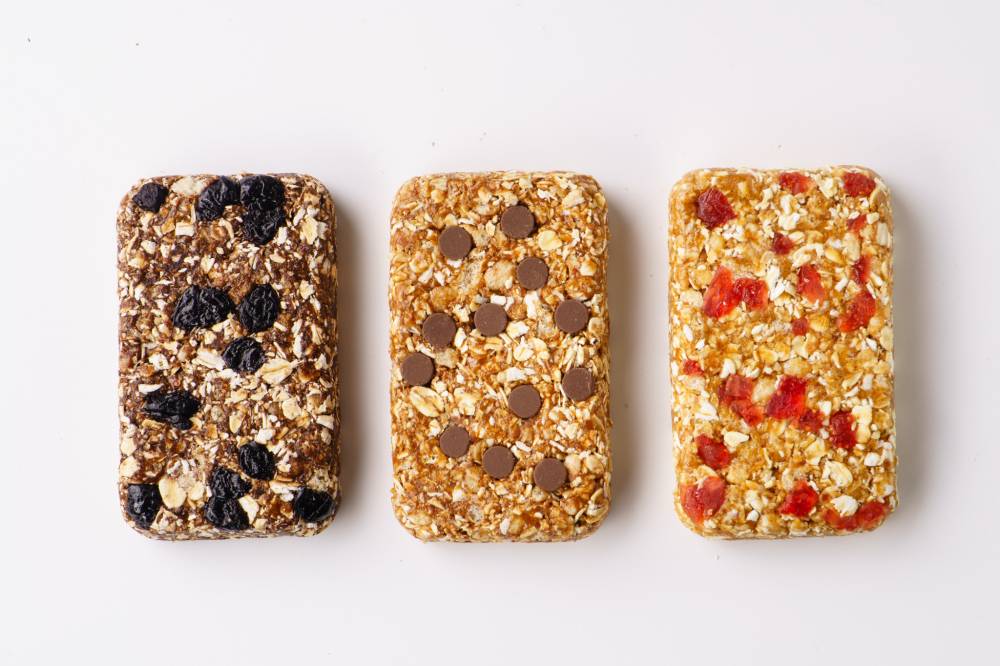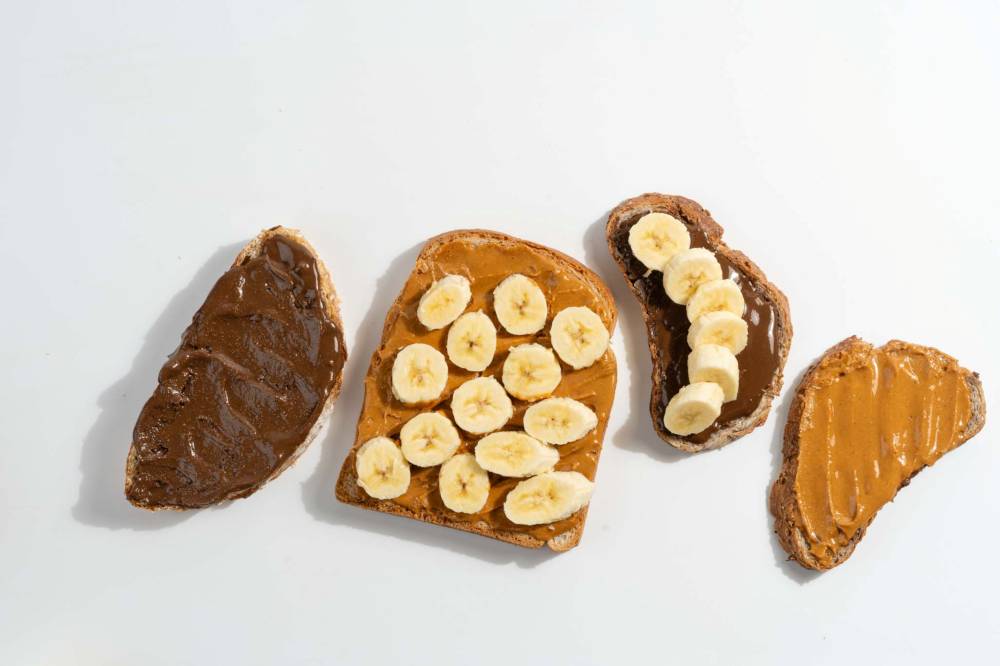This power couple just made healthy snacking cool

It all began in the kitchen of celebrity stylist and baker Liz Uy, who helped her husband, entrepreneur and triathlete Raymond Racaza, develop an energy bar that was beneficial and free from excess sugars. A dedicated endurance athlete who travels worldwide for marathons, Racaza found himself consuming three imported energy bars daily at a steep cost of around P295 each.
“It was impractical,” he said. “The granola bar is part of our diet. I can’t eat fried chicken and rice whenever I compete, or else I’d have a bad gut. I needed something that, for the smallest size, would give me satiety, energy, and all the functional nutrients I need.”
During international travels, Racaza noticed the plethora of healthy products in groceries. Coming back to the local stores, he saw the same products lining store aisles—mostly unchanged since the 1980s.
“People are getting heavily into fitness, yet the market hasn’t evolved. So we wanted to create something delicious, accessible, and all-natural—something we would eat ourselves,” he said.
That idea became Mood Food, positioned as a snack for everyday energy rather than just a health bar.

Three years ago, Mood Food was born—what the couple calls their third “child” after their two boys. It responded to a glaring lack of innovation in the Philippine snack market. Racaza explained, “Our mantra is superior eating from our kitchen, but we have the factory, machinery, manpower, food technologists, and ingredients to deliver a better product.”
The bars are made from whole grain rolled oats—the entire oat kernel including bran and germ—ensuring full nutritional value with fiber, vitamins, and minerals intact. Natural preservatives such as honey and dates prevent spoilage due to their high sugar content and low water activity. Depending on the variety, the bars also include nuts, chocolate chips, and locally sourced dried fruits and nuts.
“To compete globally, you have to be 100-percent committed to quality,” said Racaza. Functional ingredients underscore the bars’ health benefits: “Shine” contains maca for hormonal balance while “Detox” includes ashwagandha for relaxation and açai for antioxidants. Recognizing Filipinos’ love for chocolate, new flavors such as chocolate sea salt, chocolate peanut butter, and peanut butter—branded Love, Excite, and Bliss—were launched before Christmas. Love features strawberry with collagen for the ladies; Excite is chocolate chip with cacao; and Bliss contains blueberries.
“We use real fruit. No artificial anything,” Racaza said. Kid-sized bars include probiotics.

Challenging
The first year was challenging. “As a manufacturing company, you have to build a factory, order packaging, hire people, and stock raw materials before making a sale,” Racaza noted. Their factory is in Taguig, with ambitions for Mood Food to become a global Filipino brand.
The company has secured approval from the Philippine Food and Drug Administration (FDA) and the United States FDA and is a member of the Oldways Whole Grains Council, a US-based organization that promotes whole grain consumption and encourages manufacturers to produce whole grain products. Mood Food is arguably the first Filipino snack company with this distinction, a certification usually reserved for imported brands.
“Nutrition is one of the most underrated aspects of sports,” Racaza said.
Though emerging, Mood Food is displayed alongside giants such as Quaker Oats and Nestlé in supermarkets. On leading e-commerce platforms, it is one of the bestsellers and has amassed over 7,000 positive reviews. Some products are already on Amazon, and the company is poised for a wider international debut this month.
“Our packaging proudly declares ‘Made in the Philippines,’” Racaza said. “At trade shows, we highlight that our products come from the Philippines, using sun-ripened local mangoes and other native ingredients. Our dream is to showcase Filipino flavors globally.”
Targeting socioeconomic classes A to C, Mood Food recognizes that today’s consumers are savvy. “There are nearly 200 million SIM cards for a population of 120 million here. People are intelligent, interconnected, they read labels, and check reviews. No one buys without reviews. This generation is health-conscious.”
The brand has partnered with major running communities and sporting organizations. At marathons, swimming tournaments, and events such as Car-Free Sundays on Ayala Avenue, Mood Food offers samples to athletes before and after races.
Yet Mood Food aims to be more than just an athlete’s fuel. “We’re launching high-protein bars soon, but we don’t want to be pigeonholed as just for gym-goers or sports,” Racaza said. “It’s balanced, everyday energy—good protein, good fiber.”
He added, “One bar provides your whole day’s fiber requirement, according to nutritionists. We use only whole grain rolled oats—you can see the grains when you open the bar.”

Children’s diets
The couple highlighted the challenge of introducing fiber to children’s diets. Children find porridge bland. But with the bars, their sons happily eat two before football practice and feel energized.
Sustainability is also a priority. Mood Food’s packaging carries the PEFC (Programme for the Endorsement of Forest Certification) label, ensuring responsibly sourced and traceable materials.
Addressing concerns about ingredient transparency, Racaza noted, “When you read other labels, many ingredients are unrecognizable. What am I eating? It’s often a compromise for cheapness. But health has no price.”
Mood Food’s prices are competitive: international brands such as Clif Bar cost P987.50 for three bars in e-commerce, while a box of four Mood Food bars is P323.
Because peanut butter is a key ingredient, Mood Food developed its own spreads to exceed established local brands which contain hydrogenated palm oil and sugar. “We never bought peanut butter—we have been making it ourselves from raw peanuts, buying our own equipment, roasting and grinding them in-house,” said Racaza. Mood Food peanut butter spreads retail between P199 and P359 for a half-kilo jar.
Clarifying labeling, he said, “No peanut butter can truly be sugar-free. Peanuts naturally contain sugars. The correct claim is ‘no added sugar.’”
Mood Food lays claim to being the first in local grocery stores to offer a high-protein, no added sugar peanut butter that is gluten-free, keto-friendly, vegan, and free of artificial additives. Upon opening the jar, customers will smell the aroma of freshly ground, dark roasted peanuts.
Behind the brand’s success is a partnership that balances business and creativity. Racaza focuses on manufacturing and growth, while Uy’s fashion background informs the product’s visual appeal. He credits his wife for the inspiration and creative direction.
“Most buyers think Mood Food is an imported, high-end brand—until they see the ‘Proudly Made in the Philippines’ label and affordable price,” Racaza said.
The company’s vision is simple: to be a global Filipino brand showcasing the best products Filipinos can create, and to encourage more Filipinos to eat healthier—to have better options.

















